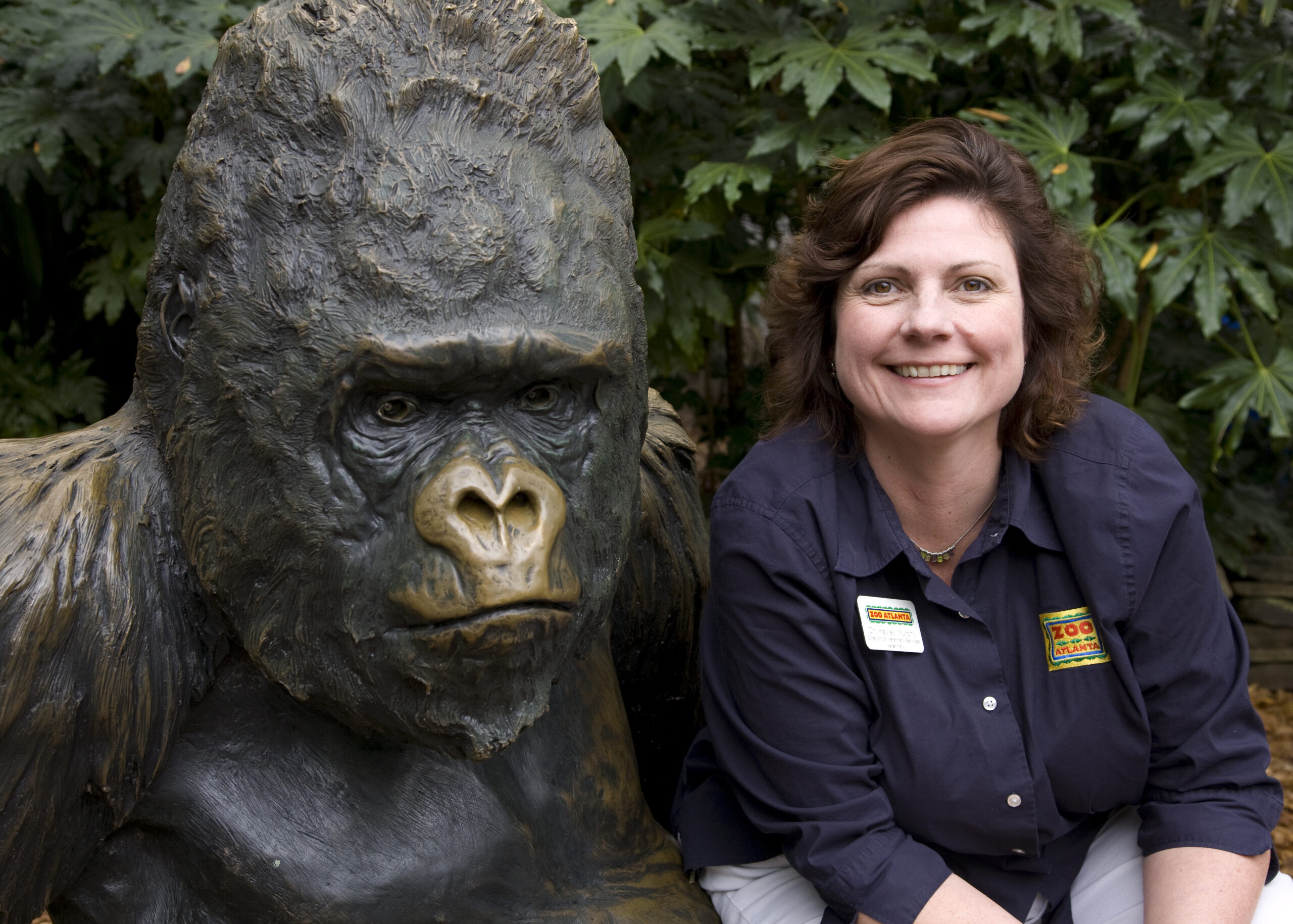Zoo Atlanta Addresses Safety Measures During COVID-19 Pandemic

Dr. Hayley Murphy, Zoo Atlanta’s deputy director, is shown with a statue of one of the zoo’s most famous residents of all time, the late Willie B. As the zoo deals with restrictions during the pandemic, Murphy said, “We are not in danger of closing, but we certainly are not enjoying financial stability.”
Zoo Atlanta
Zoo Atlanta is another Georgia entity that some would say is struggling and trying to survive the pandemic.
The over-130-year-old zoo reopened in May after the state’s shutdown earlier this year of all nonessential businesses in order to help combat the spread of the coronavirus.
Since then, Zoo Atlanta officials have had visitors make reservations online, via the zoo’s website, so that they have a scheduled, defined tour time.
The zoo’s deputy director, Dr. Hayley Murphy, spoke to WABE “Morning Edition” host Lisa Rayam about how the Atlanta institution continues to operate during a pandemic.
“We have an emergency support fund available through our website and social media sites,” Murphy said. “The community has been incredible about supporting us. We’re still asking for support in any way we can because, like other zoos and aquariums, the financial impact has really been overwhelming.”
“We don’t have the ability to go back to full capacity with the social-distancing guideline in place,” she continued. “We are not in danger of closing, but we certainly are not enjoying financial stability.”
Murphy said she “loves the fact that we are open and people can come, but we are operating at about 50% capacity as far as guest attendances. On purpose, we’ve gated that.
“We absolutely need the community support. I think the value we bring from a conversation standpoint and an education standpoint, I don’t think we will go under right now.”
Murphy said the coronavirus is not documented to spread from animals to humans.
Zoo officials and staff, Murphy said, are doing their best to protect their animal population. “We are protecting our animals from people.”
WABE’s Maria White Tillman contributed to this report.








